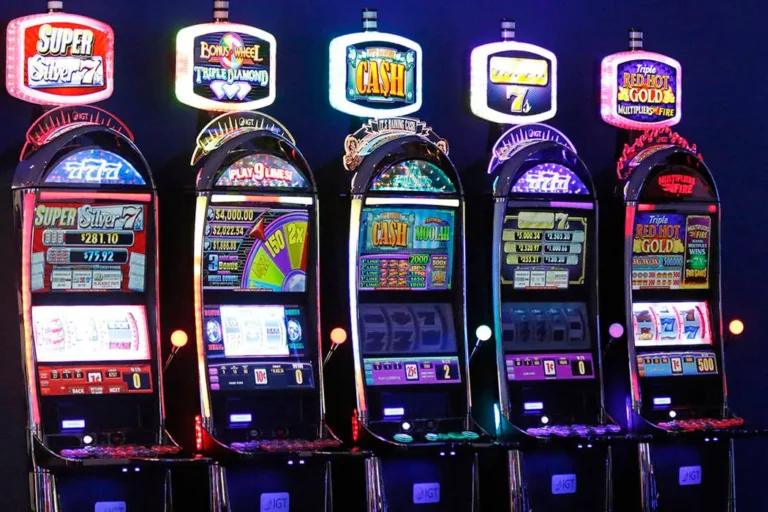Slot machines, often referred to simply as “slots,” are among the most popular forms of gambling worldwide. Found in casinos, bars, and even online platforms, these machines have a rich history and a significant cultural impact. This essay explores the origins, mechanics, types, and cultural significance of slot , providing a thorough understanding of this ubiquitous form of entertainment rtp texas88.
Historical Background of Slot
Table Of Contents
The history of slot dates back to the late 19th century. The first slot machine, known as the Liberty Bell, was invented by Charles Fey in San Francisco in 1895. This mechanical device featured three spinning reels with symbols like horseshoes, diamonds, spades, hearts, and the Liberty Bell. Players would pull a lever to set the reels in motion, hoping for a winning combination.
Fey’s invention sparked a wave of innovation, leading to the development of more sophisticated machines. In the early 20th century, slot began to incorporate fruit symbols and bar icons, a trend that persists to this day. The machines evolved from mechanical to electro-mechanical devices in the mid-20th century, eventually transitioning to fully electronic and digital formats by the late 20th and early 21st centuries scbet88 login.
Mechanics of Slot
At their core, slot machines are relatively simple devices. Modern slot machines, both physical and online, use a random number generator (RNG) to determine the outcome of each spin. This software ensures that each spin is independent and random, providing fair and unpredictable results.
A typical slot machine consists of several key components:
- Reels: These are the vertical sections that spin when the player activates the machine. Each reel has multiple symbols, and the combination of these symbols determines the player’s winnings.
- Paylines: These are the lines across the reels that determine winning combinations. Traditional slot machines had a single payline, but modern machines can have multiple paylines, sometimes numbering in the hundreds.
- Symbols: These are the images on the reels. They can include fruits, numbers, letters, or themed images depending on the machine’s design.
- Betting Options: Players can usually choose the amount they want to bet per spin and how many paylines they want to activate. Higher bets and more active paylines can increase the potential winnings.
Types of Slot Machines
There are several types of slot machines, each offering a unique gaming experience:
- Classic Slots: These are traditional three-reel machines that mimic the original slot machines. They typically have a limited number of paylines and simple gameplay.
- Video Slots: These modern machines feature five or more reels and a variety of themes, graphics, and bonus features. Video slots often include animations, sound effects, and interactive elements.
- Progressive Slots: These machines are linked together in a network, with a portion of each bet contributing to a cumulative jackpot. The jackpot continues to grow until a lucky player hits the winning combination.
- 3D Slots: These slots offer advanced graphics and animations, creating an immersive gaming experience. The visuals are designed to provide a three-dimensional effect, enhancing the overall gameplay.
- Mobile Slots: With the advent of mobile technology, many slots are now available on smartphones and tablets. These mobile slots are designed for touch screens and can be played anywhere with an internet connection.
The Appeal of Slot Machines
Slot machines are immensely popular for several reasons:
- Simplicity: Slots are easy to play, requiring no special skills or knowledge. This accessibility makes them appealing to a wide audience.
- Variety: With countless themes and designs, there is a slot machine to suit every taste. From ancient civilizations to popular movies, the themes are endless.
- Excitement: The spinning reels, flashing lights, and chance of winning big create an adrenaline rush for players. The random nature of the game keeps players engaged and hopeful.
- Progressive Jackpots: The potential to win life-changing sums of money through progressive jackpots adds an extra layer of excitement and allure.
Cultural Impact of Slot Machines
Slot machines have become a significant part of gambling culture. They are not only a major revenue source for casinos but also a popular form of entertainment for millions of people. The cultural impact of slot machines extends beyond casinos, influencing popular media, fashion, and even language.
In popular media, slot machines are often depicted in movies, TV shows, and literature, symbolizing luck, chance, and the potential for sudden wealth. Phrases like “hit the jackpot” have entered everyday language, reflecting the widespread influence of slot machines.
Moreover, the design and aesthetics of slot machines have influenced various aspects of popular culture. The bright lights, catchy sounds, and engaging themes are often mirrored in other forms of entertainment and advertising.
Responsible Gambling and Slot Machines
While slot machines provide entertainment and excitement, it’s important to approach them responsibly. The nature of slot machines, with their random outcomes and potential for large wins, can lead to addictive behavior for some individuals. Responsible gambling practices are crucial to ensure that playing slots remains a fun and safe activity.
Casinos and online platforms often provide tools and resources to help players gamble responsibly. These can include setting betting limits, self-exclusion options, and access to support for problem gambling.
Conclusion
Slot machines, with their rich history, diverse types, and significant cultural impact, continue to be a favorite pastime for many. Their appeal lies in their simplicity, variety, and the excitement they generate. However, responsible gambling practices are essential to maintain the enjoyment and safety of this popular form of entertainment. As technology advances, slot machines will likely continue to evolve, offering new and innovative experiences for players around the world.
